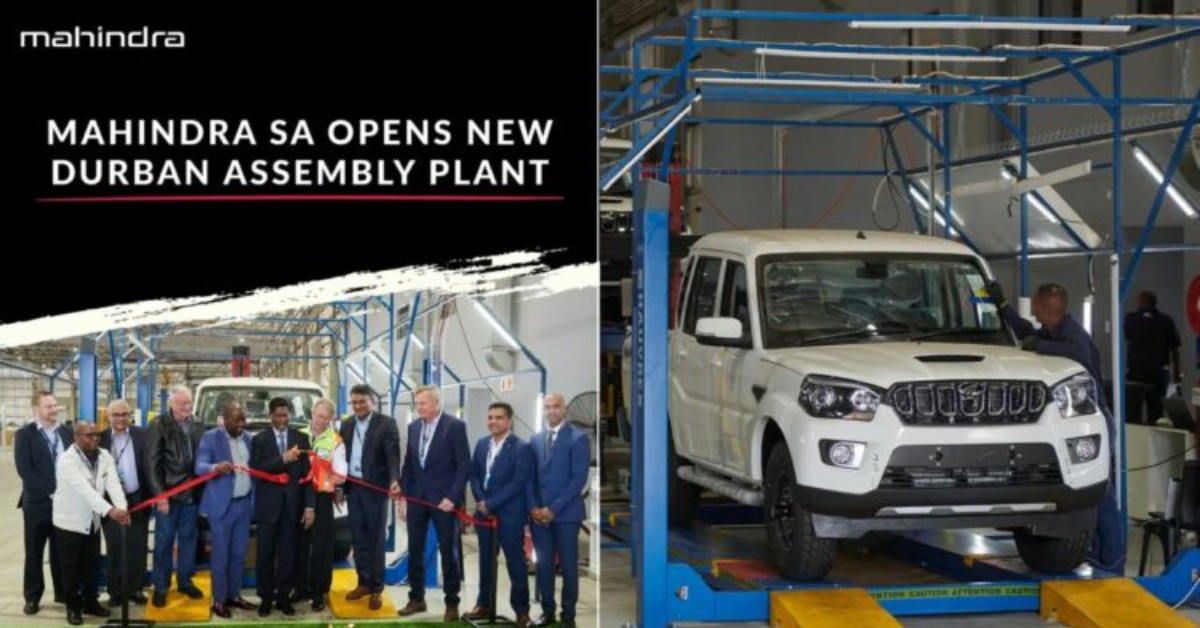Mahindra & Mahindra, the Indian automotive giant, has taken a significant step in expanding its global presence with the inauguration of a new assembly plant in South Africa. This strategic move reinforces Mahindra’s commitment to the African market while aiming to cater to increasing demand for its SUVs, pickups, and commercial vehicles across the continent.
The new facility is expected to boost production capabilities, enhance local employment, and strengthen Mahindra’s brand presence in a competitive automotive market.
Why South Africa?
South Africa has long been a strategic hub for automotive manufacturing in Africa, providing an ideal ecosystem for global automakers due to:
- Growing SUV and Pickup Demand: Consumers increasingly prefer robust, utility-oriented vehicles suitable for local terrain and conditions.
- Strong Automotive Infrastructure: South Africa hosts an established network of suppliers, skilled labor, and logistics infrastructure.
- Gateway to African Markets: Export opportunities to neighboring countries make South Africa a central hub for Mahindra’s regional expansion.
- Government Support: Policies supporting foreign investments and local manufacturing have encouraged global automakers to establish assembly plants.
Mahindra’s decision to invest in South Africa aligns with these strategic advantages, positioning the company for sustained growth in the African automotive sector.
The New Assembly Plant – Features & Capabilities
The state-of-the-art assembly facility represents a significant upgrade from Mahindra’s previous operations in the region. Key features include:
- Modern Production Lines: Automated and semi-automated assembly lines ensure precision, speed, and quality control.
- Local Parts Sourcing: Emphasis on sourcing components locally to reduce costs and support the South African supply chain.
- Environmental Compliance: Energy-efficient operations and waste reduction initiatives reflect Mahindra’s commitment to sustainability.
- Skilled Workforce Training: On-site training facilities to equip workers with modern automotive assembly skills.
- Vehicle Range: The plant will initially assemble popular Mahindra models, including the Scorpio, Thar, XUV700, and commercial pickups.
By combining modern technology with skilled labor, the plant is designed to meet global quality standards while catering to regional preferences.
Impact on Local Employment
One of the most significant benefits of Mahindra’s new plant is the creation of local jobs. The facility is expected to generate hundreds of direct jobs in assembly, quality control, logistics, and management, along with additional indirect employment in the supply chain and service sectors.
This move will not only boost the local economy but also contribute to skill development in South Africa’s automotive sector, preparing the workforce for modern manufacturing techniques and enhancing long-term employability.
Boosting Exports and Regional Presence
The South African plant will serve as a strategic export hub for Mahindra vehicles to other African countries. This is particularly relevant as SUVs and pickups are highly popular in neighboring nations due to their versatility and off-road capability.
- Reduced Lead Time: Local assembly reduces delivery times and improves customer satisfaction.
- Cost Efficiency: Minimizing import duties and logistics costs makes Mahindra vehicles more competitively priced in regional markets.
- Market Responsiveness: The plant enables Mahindra to quickly adapt to market demands and introduce new models suited for African consumers.
By strengthening its regional footprint, Mahindra aims to become a key player in the African automotive market.
Focus on SUVs and Commercial Vehicles
Mahindra has built its global reputation on durable, versatile, and affordable SUVs and pickups. The new South African assembly plant will primarily focus on vehicles such as:
- Mahindra Scorpio: Popular for its rugged design and off-road capability.
- Mahindra Thar: Iconic SUV for adventure enthusiasts, blending style and performance.
- Mahindra XUV700: Premium SUV with modern tech and advanced features for families.
- Commercial Pickups: Reliable workhorses for small businesses and industrial use.
By localizing production of these models, Mahindra can offer better pricing, faster delivery, and tailored features for African consumers.
Global Strategy and Brand Positioning
Mahindra’s move is consistent with its broader global expansion strategy, which focuses on:
- Strengthening presence in emerging markets
- Offering localized products that meet regional needs
- Maintaining global quality standards while optimizing costs
- Enhancing brand recognition and loyalty across continents
The South African plant is a visible symbol of Mahindra’s long-term commitment to the continent, aiming to compete effectively with international automakers already operating in the region.
Sustainability and Corporate Responsibility
The new assembly plant reflects Mahindra’s commitment to sustainable operations and corporate social responsibility (CSR):
- Energy-Efficient Facilities: Use of renewable energy sources and energy-saving manufacturing processes.
- Waste Reduction Programs: Initiatives to minimize environmental impact and promote responsible production.
- Community Engagement: Local employment, training programs, and support for community initiatives.
This approach not only aligns with global environmental standards but also enhances Mahindra’s reputation as a socially responsible automaker.
Challenges and Opportunities
While the new plant opens numerous opportunities, Mahindra will need to navigate challenges such as:
- Competition: Competing with established global brands like Toyota, Ford, and Volkswagen in Africa.
- Economic Volatility: Fluctuations in currency, fuel prices, and economic conditions could affect vehicle pricing.
- Supply Chain Management: Ensuring timely availability of components for smooth production.
However, with its robust SUV lineup, competitive pricing, and commitment to local employment, Mahindra is well-positioned to leverage these opportunities.
Conclusion
Mahindra’s inauguration of a new assembly plant in South Africa marks a milestone in its global expansion journey. With a focus on SUVs, pickups, modern manufacturing techniques, and local employment, the company is poised to strengthen its brand presence across the continent.
The plant not only benefits Mahindra by improving production efficiency and export capability but also supports the local economy, enhances skills, and promotes sustainable automotive practices.
By combining Indian engineering excellence with localized manufacturing, Mahindra is set to redefine its role in the African automotive landscape. The new South African facility is more than just a plant—it is a symbol of growth, innovation, and long-term commitment to emerging global markets.
